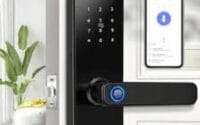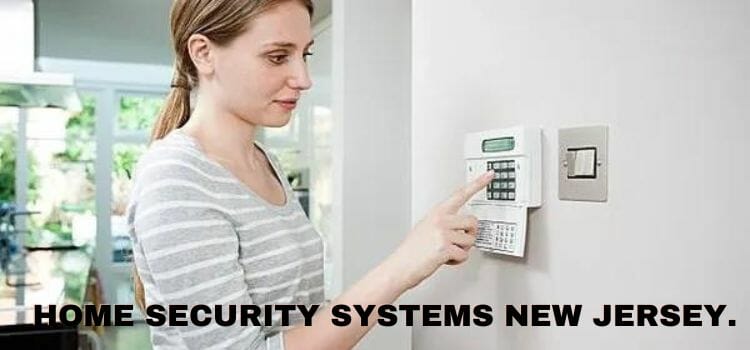The importance of regular maintenance for your home security system
In today’s world, home security is a top priority for many homeowners. With the rise of smart homes and connected devices, it’s easier than ever to install and monitor a home security system. However, despite the advancements in technology, many homeowners overlook a crucial aspect of maintaining their home security system: regular maintenance.
A well-maintained home security system is not just a luxury, it’s a necessity. Without regular maintenance, your system can become outdated, inefficient, and even vulnerable to potential threats. In fact, a study by the National Burglar and Fire Alarm Association found that 85% of false alarms can be attributed to simple maintenance issues, such as dirty sensors or faulty wiring.
Regular maintenance is not just about preventing false alarms or repairing broken components – it’s about protecting your home and family from potential threats. In this blog post, we’ll explore the importance of regular maintenance for your home security system, and provide practical tips on how to keep your system running smoothly and effectively. Whether you’re a seasoned homeowner or just installing your first security system, this post will help you understand the importance of regular maintenance and how to prioritize it for your home’s safety and security.
1. Stay Safe and Secure: Why Regular Maintenance is Crucial for Your Home Security System
When it comes to home security, many of us take a set-it-and-forget-it approach. We install a system, feel secure, and then forget about it until something goes wrong. However, neglecting regular maintenance can have serious consequences for your home and family. In this blog post, we’ll explore the importance of regular maintenance for your home security system and why it’s crucial to prioritize it.
**Why Maintenance is Important**
Regular maintenance is essential to ensure your home security system continues to function properly and effectively. Here are just a few reasons why:
* **Prevent System Failures**: A well-maintained system is less likely to experience failures, which can leave your home vulnerable to intruders. Regular maintenance can help identify and fix potential issues before they become major problems.
* **Improve System Performance**: Maintenance can help optimize your system’s performance, ensuring that sensors, cameras, and alarms are functioning as intended. This can help reduce false alarms, improve response times, and provide a more effective deterrent against intruders.
* **Enhance System Durability**: Regular maintenance can help extend the lifespan of your system’s components, reducing the need for costly repairs or replacements.
* **Ensure Compliance**: Many insurance companies and homeowners associations require regular maintenance to ensure compliance with security regulations.
**What to Maintain**
So, what specific aspects of your home security system should you prioritize for maintenance? Here are some key areas to focus on:
* **Battery Life**: Check the batteries in your system’s devices regularly to ensure they’re functioning properly. Replace them as needed.
* **Sensor Alignment**: Verify that sensors are properly aligned and positioned to detect potential intruders.
* **Software Updates**: Regularly update your system’s software to ensure you have the latest features and security patches.
* **System Testing**: Test your system regularly to ensure it’s functioning as intended and identify any potential issues.
**Conclusion**
In conclusion, regular maintenance is crucial for ensuring your home security system remains effective and reliable. By prioritizing maintenance, you can prevent system failures, improve performance, enhance durability, and ensure compliance with regulations. Don’t wait until something goes wrong – take proactive steps today to stay safe and secure in your home.
2. The Cost of Neglect: How Regular Maintenance Can Save You from Home Security Issue
When it comes to home security, many of us tend to overlook the importance of regular maintenance. We may think that our system is functioning properly, and that a simple reset or replacement of batteries will be enough to keep us safe. However, neglecting regular maintenance can have serious consequences for our homes and families.
**The Cost of Neglect**
In addition to the potential risks to your home and family, neglecting regular maintenance can also lead to costly repairs and replacements. Here are some examples of the cost of neglect:
* **System Failure**: A neglected system can fail at the most inopportune moment, leaving you vulnerable to intruders. This can lead to costly repairs or even replacement of the entire system.
* **False Alarms**: Neglecting regular maintenance can lead to false alarms, which can result in costly fees and fines. In addition, repeated false alarms can also lead to a loss of trust in your security system.
* **Component Failure**: Failing to replace worn-out components, such as sensors or cameras, can lead to costly repairs or replacements. In addition, failing to replace batteries can result in a complete system failure.
* **Insurance Claims**: Neglecting regular maintenance can also result in higher insurance claims. If your home is burglarized or vandalized due to a neglected security system, you may be faced with higher insurance premiums or even a denied claim.
**The Benefits of Regular Maintenance**
On the other hand, regular maintenance can save you from costly issues and provide peace of mind for your home and family. Here are some benefits of regular maintenance:
* **Prevent System Failure**: Regular maintenance can help identify and fix potential issues before they become major problems.
* **Reduce False Alarms**: Regular maintenance can help reduce false alarms by ensuring that sensors and cameras are functioning properly.
* **Save Money**: Regular maintenance can help prevent costly repairs and replacements by identifying and fixing issues before they become major problems.
* **Increase Peace of Mind**: Regular maintenance can provide peace of mind for your home and family, knowing that your security system is functioning properly and effectively.
**Conclusion**
In conclusion, neglecting regular maintenance for your home security system can have serious consequences for your home and family. By prioritizing regular maintenance, you can prevent costly issues, reduce false alarms, save money, and increase peace of mind for your home and family. Don’t wait until something goes wrong – take proactive steps today to maintain your home security system and ensure your safety and security.
3.Protect Your Home, Protect Your Family: The Importance of Regular Maintenance for Your Home Security System
When it comes to home security, many of us tend to focus on the installation and initial setup of our system, without giving much thought to the importance of regular maintenance. However, regular maintenance is crucial for ensuring that your home security system continues to function properly and effectively. In this blog post, we’ll explore the benefits of regular maintenance and how it can improve your home security system.
**Improve System Performance**
Regular maintenance can help improve the performance of your home security system by ensuring that all components are functioning properly. This includes:
* **Sensor Calibration**: Regularly calibrating your sensors can help ensure that they are accurately detecting motion and other potential threats.
* **Camera Maintenance**: Regularly cleaning and inspecting your cameras can help ensure that they are providing clear video footage and are not prone to failure.
* **Alarm Testing**: Regularly testing your alarm system can help ensure that it is functioning properly and that you receive timely notifications in the event of an incident.
**Enhance System Reliability**
Regular maintenance can also help enhance the reliability of your home security system. This includes:
* **Component Replacement**: Regularly replacing worn-out components can help prevent system failures and ensure that your system remains reliable.
* **Software Updates**: Regularly updating your system’s software can help ensure that you have the latest features and security patches, which can help prevent hacking and other security breaches.
* **Inspections**: Regularly inspecting your system can help identify potential issues before they become major problems, which can help prevent system failures.
**Reduce False Alarms**
Regular maintenance can also help reduce false alarms, which can be costly and inconvenient. This includes:
* **Sensor Adjustment**: Regularly adjusting your sensors can help ensure that they are accurately detecting motion and other potential threats.
* **System Tuning**: Regularly tuning your system can help ensure that it is properly calibrated to reduce false alarms.
* **Education**: Regularly educating yourself on how to use your system correctly can help reduce false alarms.
**Conclusion**
In conclusion, regular maintenance is crucial for ensuring that your home security system continues to function properly and effectively. By prioritizing regular maintenance, you can improve system performance, enhance system reliability, reduce false alarms, and increase peace of mind for your home and family. Don’t wait until something goes wrong – take proactive steps today to maintain your home security system and ensure your safety and security.
4. “Don’t Let Your Guard Down: The Consequences of Ignoring Your Home Security System’s Maintenance”
When it comes to home security, nothing can be more frustrating than receiving false alarms. False alarms can be costly, inconvenient, and even compromising to your sense of security. Moreover, repeated false alarms can lead to a loss of trust in your security system, which can ultimately put your home and family at risk. In this blog post, we’ll explore the importance of reducing false alarms and provide some practical tips on how to minimize false alerts and enjoy peace of mind.
**The Consequences of False Alarms**
False alarms can have serious consequences for your home and family. Here are some examples:
* **Costly Fees**: Many security companies charge fees for responding to false alarms, which can add up quickly.
* **Inconvenience**: False alarms can disrupt your daily routine and cause inconvenience for you and your family.
* **Loss of Trust**: Repeated false alarms can lead to a loss of trust in your security system, which can compromise your sense of security.
* **Increased Risk**: False alarms can also increase the risk of actual break-ins or other security breaches, as they can make it easier for intruders to detect and exploit weaknesses in your system.
**Practical Tips for Reducing False Alarms**
Here are some practical tips for reducing false alarms:
* **Sensor Adjustment**: Regularly adjust your sensors to ensure that they are accurately detecting motion and other potential threats.
* **System Tuning**: Regularly tune your system to ensure that it is properly calibrated to reduce false alarms.
* **Pet-Friendly Systems**: Consider installing pet-friendly systems that are designed to detect and ignore pet activity.
* **User Education**: Educate yourself and your family members on how to use the system correctly and avoid triggering false alarms.
* **Regular Maintenance**: Regularly inspect and maintain your system to ensure that all components are functioning properly.
**Best Practices for Minimizing False Alarms**
Here are some best practices for minimizing false alarms:
* **Use High-Quality Sensors**: Use high-quality sensors that are designed to detect specific types of motion or activity.
* **Avoid Over-Sensitivity**: Avoid over-sensitivity by setting the sensitivity levels of your sensors correctly.
* **Test Your System**: Regularly test your system to ensure that it is functioning properly and not triggering false alarms.
* **Monitor Your System**: Monitor your system remotely or through a mobile app to receive notifications and respond quickly in the event of an actual alarm.
**Conclusion**
In conclusion, reducing false alarms is crucial for maintaining peace of mind and ensuring the effectiveness of your home security system. By following these practical tips and best practices, you can minimize false alarms, reduce costly fees, and increase the sense of security for your home and family. Remember, a well-maintained and properly configured security system is essential for protecting your home and family from potential threats.
Conclusion:
In conclusion, regular maintenance is a crucial aspect of ensuring the effectiveness and reliability of your home security system. By prioritizing regular maintenance, you can rest assured that your system is functioning properly, reducing the risk of false alarms, and providing you with peace of mind. From improving system performance and reliability to reducing false alarms and increasing overall security, regular maintenance is essential for protecting your home and family.
In today’s world, home security is more important than ever. With the rise of smart homes and connected devices, it’s easier than ever to install and monitor a home security system. However, with great technology comes great responsibility. Regular maintenance is not just a best practice, it’s a necessity.
By following the tips and best practices outlined in this blog post, you can ensure that your home security system is running at optimal levels, providing you with the protection and peace of mind you need to feel secure in your home. Don’t wait until something goes wrong – take proactive steps today to maintain your home security system and enjoy the benefits of a secure and safe living environment.
Remember, regular maintenance is not just about preventing false alarms or repairing broken components – it’s about protecting your home and family from potential threats. By prioritizing regular maintenance, you’re investing in the safety and security of your loved ones. So, take the time to inspect, test, and maintain your home security system today – your family will thank you.



